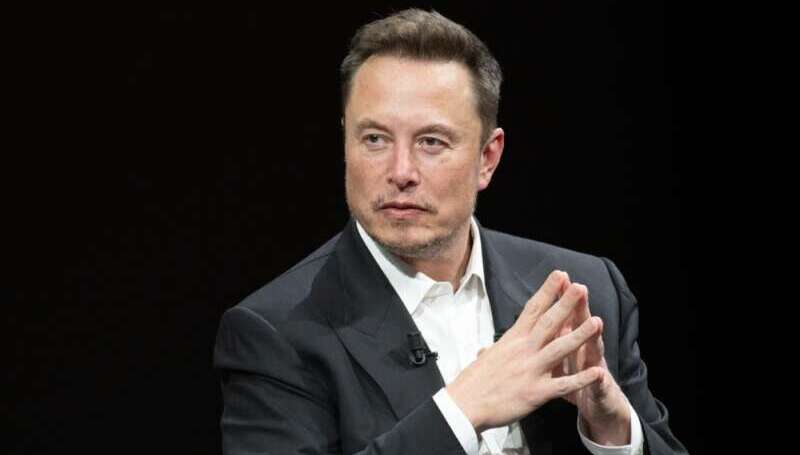
President Donald Trump left the door open today for senior White House advisor Elon Musk to continue advising the president and working with the Department of Government Efficiency (DOGE) as a private citizen as Musk’s official role as a special government employee came to an end.
During an Oval Office briefing Friday afternoon Trump thanked Musk for his DOGE work, calling him a friend and saying that he “hopes” Musk will continue to advise the president while the tech mogul makes his official return to the private sector. Musk’s role as a “special government employee” reached its 130-day annual limit on today.
“Many of the DOGE people … are staying behind too, so they’re not leaving, and Elon is really not leaving, he’s going to be back and forth,” said Trump. “It’s his baby,” Trump said while Musk stood alongside the president, wearing a graphic tee-shirt saying “The Dogefather.”
“I think he’s going to be doing a lot of things,” the president added.
During his own remarks today, Musk voiced the possibility of DOGE continuing beyond its sunset date of July 4, 2026, which was created via an executive order on the first day of Trump’s second administration that rebranded the U.S. Digital Service as the U.S. DOGE Service with a focus on modernizing Federal government technology to improve efficiency and productivity.
Musk suggested that the work DOGE was doing to modernize Federal systems and root out alleged fraud and waste may take longer than the 18-month timeline set by that order.
“We do expect to achieve over time the trillion dollars of savings, we can’t do it in a few months, but if you say by … the official end of DOGE – which the president may choose to extend … by the middle of next year, with the support of the president and Congress, could we achieve $2 trillion of savings? I think so,” said Musk, referring to the targeted $2 trillion in savings he had previously said was DOGE’s goal.
Amy Gleason was appointed the acting administrator of DOGE in February, although Musk has been the most public face of the agency.
President Trump said today DOGE will continue to work on modernization efforts.
“Elon delivered a colossal change in the old ways of doing business in Washington, DOGE has installed geniuses with an engineering mindset and unbelievably talented people in computers,” said Trump. “[Elon] said the thing that they’re really the best at is working with computers so that they can’t be outsmarted by somebody … that happens to also be good with computers, but not as good as these people.”
“The mindset of the senior ranks of every Federal department, it’s really changed, and with Elon’s guidance, they’re helping to detect fraud, slash waste, and modernize broken and outdated systems,” the president continued.
Trump said that “it takes a long time” to fully modernize systems, pointing to modernization efforts at the Internal Revenue Services (IRS) and the phasing out of legacy air traffic control (ATC) systems as notable DOGE priorities.
Many of those efforts – such as at the IRS – have drawn legal challenges over DOGE access to classified and private data, while others, like ATC modernization, have been welcomed for addressing long-term safety risks. Still, Federal officials and lawmakers have criticized the efficiency of these upgrades, particularly given major workforce cuts led by DOGE.
“We’re going to get a brand new, modern [ATC] system – Congress is working with us on that, and we’re going to get it done as quickly as we can,” said Trump while claiming that the Biden administration had failed in its system interoperability efforts.
Musk said that he expects DOGE’s influence to continue overtime, calling it “a way of life.”
“It is permeating throughout the government, and I’m confident that over time, we will see a trillion dollars of savings and … waste and fraud reduction,” said Musk. “I think the DOGE team is doing an incredible job, they’re going to continue doing an incredible job and I’ll continue to be here.”
DOGE claimed it had generated $175 billion of savings as of this week for the Federal government – figures that have been widely questioned – composed of a “combination of asset sales, contract/lease cancellations and renegotiations, fraud and improper payment deletion, grant cancellations, interest savings, programmatic changes, regulatory savings, and workforce reduction.”
